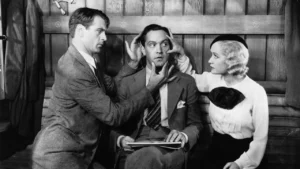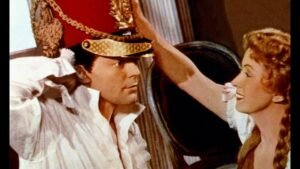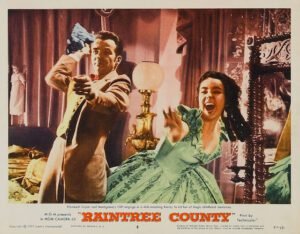Beyond Expectations: The Enduring Charm of Marty (1955) in Classic Hollywood
Explore Marty (1955), the surprising Best Picture Oscar winner. Ernest Borgnine shines in this timeless tale of conformity, loneliness, and finding love.

Here’s the story of a man named Marty (Ernest Borgnine). He’s like anyone who doesn’t fit a mold, whether in a small town or a large metropolis, in 1950 or 2018. Marty is a good guy; he works hard, and he has a loving mother whose affection he reciprocates. However, there’s a problem with all of this. From his neighbors to his friends, clients, and family: everyone wants him to get married as soon as possible.
The society he lives in has very clear rules: he’s over 30, his siblings are already settled (meaning married), and Marty can’t find his soulmate. Why? And it’s not for lack of people trying to push him into various situations, be it blind dates, taking him to places he dislikes, or trying every method to get him hitched.
During one of these outings, an unexpected event occurs. He meets Clara (Betsy Blair), an intelligent, financially independent woman who shares several traits with Marty: she’s also lonely, lives with her parents, and has a co-dependent relationship with them that prevents her from soaring to new heights. The two, in their remarkably similar worlds, get along well. Conversation flows, something sparks. They agree to meet the next day. That’s when the drama begins.
The very people who pushed him toward a relationship, upon seeing him on the verge of having one, become even more insecure than he is. His best friend throws a fit, seeing himself as lonely; his mother becomes a sea of doubt, thinking she’ll be alone and abandoned; and his “friends” start finding fault with a woman they don’t even know, reducing her to someone aesthetically unattractive. As if Marty were Miss America. But that’s okay.
Marty tackles a very pertinent theme that, as I mentioned, fits both that decade and the present one in its own way. This is especially true when we consider that even today, those who don’t fit into certain social groups will hardly find peace to follow their own path, whether choosing their career direction, their partner, or simply wanting to be alone.
The issue of choosing to be alone isn’t explicitly touched upon in the film, but these individuals would also be “contemplated” as different by a society that desires neat boxes and infinite pattern repetition. Everyone will encounter some difficulty until they can afford the luxury of choosing to be “selfish” and opt for their own happiness.
Talking about selfishness in this case is vital. After all, everyone else around him is also being selfish. Whether it’s his mother and friend afraid of being alone, or the friends who don’t want to lose the one they’ll always pity in the end. Because inviting Marty makes them feel better about themselves, even though they are the biggest failures of all.
We can say that, except for these “friends,” there’s yet another issue handled in a touching way: women who dedicate their lives to their husbands and children, and in their absence find themselves without purpose. In modern times, we still see many such cases, but Clara’s character points to a different path: she is a professional; there’s no indication she’ll give up her work, and even if she does, she advises her future mother-in-law: why not find something to dedicate yourself to now? And there always is!
By hinting that she doesn’t want to be that kind of woman, Clara signs a sentence that her days can be better. Even so, she needs a “yes” from Marty for these days to come. We can’t ask too much. It’s a film from the 1950s that still handles the theme in an adorable way.
Marty possesses an incredible simplicity, and even if it has aged in some respects, it raises these pertinent questions about how often we demand too much of ourselves to please others. Or about how, in the end, a forceful attitude is necessary to follow your own path, even if it’s completely outside the norm.
Fascinating Facts About Marty
The first thing to discuss here is that no one expected such a simple film to become such a success. So much so that Burt Lancaster initially didn’t even acknowledge being one of the producers. And when I say there weren’t great expectations, I’m not exaggerating: this was an adaptation of a TV film made two years prior, had a shoestring budget, was to be directed by a first-time director (Delbert Mann), and there was an internal war brewing backstage between Gene Kelly and United Artists. Let me explain.
Betsy was a lovely woman, though little remembered today. In those witch-hunting times, she was openly left-leaning and being closely investigated by the committee. Her name even appeared on the infamous blacklist. It took Gene Kelly threatening United Artists, stating he would never again distribute his films with them, for his wife’s name not to be removed from the cast.
It worked. An excellent actress, Betsy was nominated for an Oscar that year but didn’t win. However, a few years later, already separated from Gene, she pursued a career in Europe due to the persecution.
Competing for several awards, Marty won the following Oscars: Best Actor (Ernest Borgnine), Best Picture, Best Director (Delbert Mann), and Best Screenplay (Paddy Chayefsky). Borgnine also won the Golden Globe for Best Actor, and the film won the Palme d’Or at Cannes, which was quite surprising. Such are the magics only cinema can provide.



